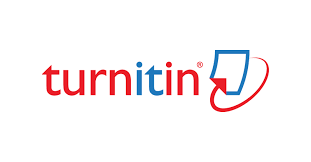Optimalisasi Ketahanan Energi Melalui Kebijakan Pengurangan Konsumsi Gas Elpiji di Indonesia
DOI:
https://doi.org/10.30656/jdkp.v4i1.6263Keywords:
Energy Security, Liquefied Petroleum Gas, Renewable Energy, Price ceiling, Public PolicyAbstract
This article aims to analyze energy security policies in Indonesia related to reducing the use of fossil energy by increasing the use of renewable energy. The problem is focused on the idea of the Government of Indonesia to switch the use of Liquefied Petroleum Gas (LPG) based energy to electricity-based energy, especially for household consumers. To approach this problem, theoretical references from scarcity and energy security theories are used, related to current LPG-based energy management in Indonesia and plans for the future. The data were collected through secondary data, literature review, and field studies and were analyzed qualitatively. The results of this study indicate that renewable energy used as a basis for electrical energy is expected to reduce dependence on fossil energy, namely LPG gas. The policy accompanying this energy transition uses a price ceiling policy on LPG gas and an alternative LPG policy. Government policy emphasizes the ceiling price, which sets the highest retail price (HET) for LPG gas. This alternative policy is supported by the use of electricity from renewable energy, including water, wind, biomass, and solar. Another energy alternative is new energy, namely dimethyl ether (DME), which is obtained from processed coal with low calories. In terms of implementation, to maintain a stable supply in the market, it is necessary to monitor and evaluate so that The Gass can still maintain the gas supply and It can control the energy demand for households.
References
Amadeo, K. (2022, 04 30). OPEC Oil Embargo. Retrieved from The Balance Money: https://www.thebalancemoney.com/opec-oil-embargo-causes-and-effects-of-the-crisis-3305806
Amineh, P. M., & Houweling, H. (2018). Central Eurasia in Global Politics: Conflict, Security and Development. Brill.
Arikunto, A. (2010). Research Methodology. Malang: UMM.
Bungin, B. (2020). Metodologi Penelitian Kualitatif. Jakarta: Kencana.
Dewan Energi Nasional. (2019). Buku Ketahanan Energi Indonesia 2019. Jakarta: Dewan Energi Nasioal.
Dewan Energi Nasional. (2021). Potensi Energi di Indonesia. Jakarta: Dewan Energi Nasional.
Idris, M. (2021, 12 28). Pertamina Naikkan Harga LPG Nonsubsidi, Ini Rincian Harga Terbarunya. Retrieved from Kompas: https://money.kompas.com/read/2021/12/28/081743626/pertamina-naikkan-harga-lpg-nonsubsidi-ini-rincian-harga-terbarunya?page=all
International Energy Agency. (2022). IEA Statistics. International Energy Agency.
Kementerian Energi dan Sumber Daya Mineral. (2020). Penetapan Harga LPG. Jakarta: Kementerian ESDM.
Mankew, G. N. (2020). Principles of Microeconomics. South-Western Cengange Learning.
Martha, F. P. (2022). Nilai Impor LPG Indonesia Meroket, Ini Negara-negara Pengirimnya. Jakarta: Ekonomi Bisnis.
Purnadi, H., & Arijanto, A. (2014). Pengaruh Bahan Bakar Gas LPG terhadap Emisi Gas Buang Sepeda Motor Karburator. Jurnal Teknik Mesin, 398-404.
Rachman, A. S. (2015). Preferensi Rumah Tangga Dalam Memilih Jenis Bahan Bakar Utama Untuk Memasak Di Indonesia. Surabaya: Universitas Airlangga.
Rauf, A. S., Widodo, S., & Nawir, A. (2018). Peningkatan NIlai Kalori pada Batubara Lignit dengan Metode Aglomerasi Air dan Minyak Sawit pada PT Indonesia Power UJP PLTU Barru. Jurnal Geomine.
Samuelson, P. A., & Nordhaus, W. D. (2010). Economics. McGraw-hill.
Sheffield, J. (2016). World population and energy demand growth: The potential role of fusion energy in an efficient world. The royal society., 377-395.
Sianipar, R., Boedoyo, M. S., & Sasongko, N. A. (2022). Application of LCA (Life Cycle Assessment) to Solar Energy Development in Indonesia. International Journal of Innovative Science and Research Technology, 128-132.
Sloman, J., Wride, A., & Garrat, D. (2012). Economics. Harlow: Pearson Education Limited.
Supriyadi, I. (2021). Ketahanan Energi. Sentul: Universitas Pertahanan RI.
Umiyani, A. (2023, 02 13). Mafia Selewengkan BBM dan LPG Subsidi, DPR Desak Pertamina Terapkan Syarat KTP. Retrieved from IDX Channel: https://www.idxchannel.com/economics/mafia-selewengkan-bbm-dan-lpg-subsidi-dpr-desak-pertamina-terapkan-syarat-ktp
Yergin, D. (2006). Ensuring Energy Security. Foreign Affairs, 69-82.
Downloads
Published
Issue
Section
License
All articles in Jurnal Desentralisasi dan Kebijakan Publik (JDKP) can be disseminated provided they include the identity of the article and the source of the article (Jurnal Desentralisasi dan Kebijakan Publik). The publisher is not responsible for the contents of the article. The content of the article is the sole responsibility of the author
Jurnal Desentralisasi dan Kebijakan Publik (JDKP) is licensed under a Creative Commons Attribution-ShareAlike 4.0 International License.










.png)
.png)







_new12.png)

